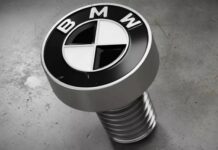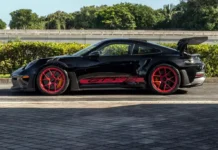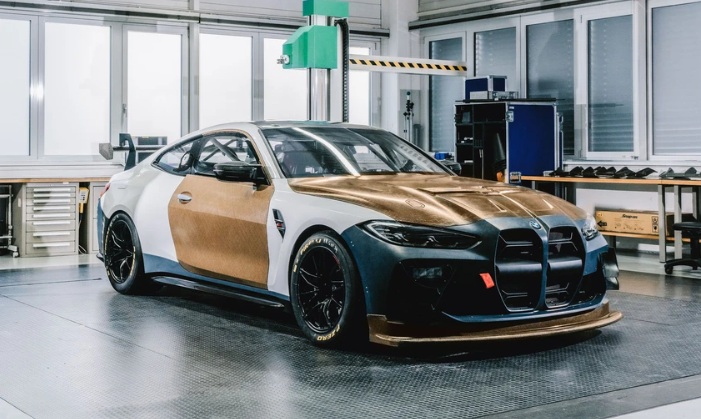BMW’s impressive win at the 2025 Nurburgring 24 Hours race not only marked the German automaker’s first victory in five years, but also a significant milestone in its journey towards developing sustainable materials for the future.
The BMW M4 GT3 Evo race car, which won this year’s championship, secretly integrated natural flax fiber technology from BMW, a potential alternative to traditional carbon fiber.
BMW began testing flax fiber materials in 2022, first applying them to the M4 GT4. By 2025, the company had upgraded and integrated natural fibers into the M4 GT3 Evo, which officially competed at Nurburgring, one of the most demanding race tracks in the world.
To realize this project, BMW collaborated with Bcomp, a Swiss technology company specializing in high-performance natural fibers. Together, they developed a range of critical components made from flax fiber, including the hood, front spoiler, doors, rear trunk, dashboard, and aerodynamic elements. Only the roof utilizes aerospace materials to ensure rigidity in special collision conditions.
According to BMW, replacing carbon fiber with flax fiber can reduce carbon emissions by up to 40% during production. Moreover, natural fibers are more environmentally friendly when it comes to end-of-life treatment, as they do not disperse sharp fiber fragments or harmful ultrafine dust like traditional composites.
Additionally, due to its characteristic of producing fewer sharp fragments in collisions, flax fiber is also considered a safer choice in high-speed racing environments. This is why an increasing number of international races, including Formula E and Super Formula in Japan, have adopted this material for their race cars.
BMW affirms that the flax fiber material it developed in collaboration with Bcomp has officially met technical standards (homologation) for application in commercial vehicles. This paves the way for future civilian models, especially high-performance BMW M-branded vehicles, to be equipped with natural fiber materials straight from the factory.
In addition to the basic flax fiber, Bcomp is developing several advanced solutions, such as ampliTex, powerRibs, and variants integrated with polypropylene fiber (ampliTex-PP, powerRibs-PP), to cater to diverse technical requirements from different industries. In the Super Formula in Japan, Bcomp collaborated on developing a hybrid body composed of 70% flax fiber and 30% carbon fiber, creating an optimal balance between performance and sustainability.
Natural flax fiber is highly regarded as a potential alternative to carbon fiber due to its lightweight, high strength, excellent vibration absorption, and environmental benefits. As the global automotive industry undergoes a significant transformation towards emission reduction and sustainability, natural fiber materials offer a new direction where speed, performance, and environmental considerations can coexist.
TH (Translated source: Tuoitrethudo)
The Great Debate: Electric vs. Hybrid Cars – Who’s Cleaner? A Stirring Statement by Toyota’s Chairman.
“In a thought-provoking statement, Toyota’s Chairman, Akio Toyoda, sparked debate around the environmental impact of battery electric vehicles (BEVs). During an interview in April, he asserted, ‘The carbon emissions of 9 million BEVs are equivalent to those of 27 million hybrid vehicles.’ This bold claim invites scrutiny and discussion, challenging us to reconsider the assumptions around the sustainability of electric cars.”














































